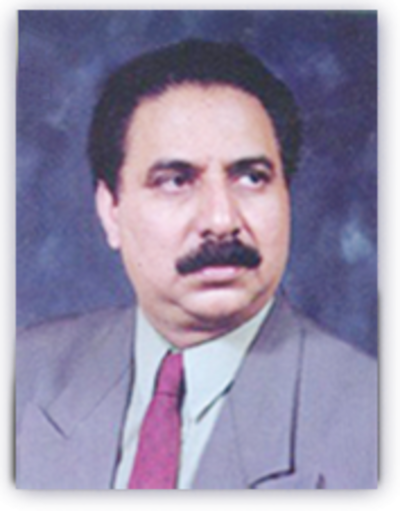“FAIZ FEHMI” DOCUMENTING THE LEGACY OF FAIZ AND HIS WORK
Book Review by Dr. Qaisar Abbas, University of North Texas, U.S.
Title: Faiz Fehmi, Tehqiq o Tanqeed
Editor: Dr. Syed Taqi Abedi
Year of Publication: 2011
Pages: 1,403
Publisher: Multimedia Affairs, Lahore
Recently I had a chance to meet the last survivor of the famous Rawalpindi Conspiracy Case Zafarullah Poshni in Dallas who was also incarcerated with Faiz Ahmed Faiz. Recollecting the memories of the days he spent with Faiz in confinement, he told me that while most of the inmates showed their psychological rage and stress at times, Faiz was always respectable to others and never lost his temper. The only time Faiz looked miserable, he said “silently smoking cigarette, walking back and forth” when he was creating poetry.
Zafarullah Poshni was part of this extraordinary group of individuals who always cared for the miseries of common folks and struggled peacefully for their rights. Dr. Syed Taqi Abedi has documented history and life of this legendary poet of the 20th century in his new book “Faiz Fehmi.”
In launching the book in Canada recently, Dr. Gopi Chand Narang rightfully declared the book as Magnum-Opus. Published by Multi Media Affairs in Lahore, the book is an astonishing anthology of articles, research papers, interviews, personal accounts of his friends and family members, photographs and illustrations on the life and work of Faiz. A voluminous work of over 1,400 pages with color printing and the fine paper quality adorned with a leather cover, the book surpasses all other publications on Faiz in its quality, content and finesse.
Although some of the articles are reproduction of published materials, most are new, based on contemporary topics. In fact, the editor claims in the preface “This document has been published to meet the demands of the 21st century so we can view his life and work from every possible perspective. We know that so much has been written on the poet and his life but we are also aware that there is a lot to write on the lament of his verse and the narrative of his prose.” It is in this context that the book attempts to fill this huge gap.
The editor also tried to keep up with the quality saying “We have consciously avoided “cut-and-paste” articles using published materials without citations as we did not want to demean these writers.”
The anthology includes articles of stalwarts of Urdu literature from across the world. The list includes Gopi Chand Narang, Syed Ahtesham Hussain, Kaleemuddin Ahmed, Mirza Khalil Baig, Safder Meer, Sharib Ridolvi, Shamsurrehman Farooqi, Al-e Ahmed Saroor, Shanul Haq Haqqi, Ahmed Nadim Qasmi, Syed Sajjad Zaheer, Ziaul Hasan, Zafar Iqbal, Abul Lais Siddiqi, Wazir Agha, Mohammad Ali Siddiqi, Jamil Jalibi, Qamar Rais, Mujtaba Hussain, Sahar Ansari, Karrar Hussain, Intizar Hussain, Sufi Ghulam Mustafa Tabbasssum, Mlik Raam, Ali Abbas Hussaini, Indar Kumar Gajral, Kirishn Chandr, Fariqh Bukhari, Syed Sibte Hasan, Iftikhar Arif, Ali Sardar Jafri, Qudratullah Shahab, Knahiya Laal Kapur, Mirza Zafarul Hasan, I.A. Rehman, Noon Meem Rashid, Hilal Naqvi, Sadiq Naqvi, Khwaja Ahmed Abbas, Mushtaq Ahmed Yousfi, Abullah Malik, Fateh Mohammad Malik and lot more.
Articles of several English and Russian writers such as George Fisher, Alexander Surikov, Lyudmala Vasilyeva and world leaders like Yasser Arafat embellish the book. A unique section includes personal accounts of family members of Faiz include articles of his wife Alice Faiz, two daughters, Saleema Hashmi and Muneeza Hashmi, and his son in-law Shoab Hashmi.
The book also includes five articles by Faiz himself on a variety of topics such as the progressive literary ideology, Josh as a revolutionary poet, films and culture, Beirut under the Israeli attack and his speech at the Lenin Peace Award ceremony.
Of the 162 articles on the poet, about one third (42) are written by the editor himself, Dr. Taqi Abedi. Contentwise, the book has about 30 articles on the poet’s life, interviews and personal accounts of his friends while 132 articles on critical reviews of his poetry and work.
Zafarullah Poshni is also represented in the book through his article “Faiz or Zindan” (Faiz and Prison). He ends the article with glowing tributes to Faiz and Sajjad Zaheer: “I learned a lot from both of these and the knowledge I gained from them during confinement made the rest of my life a real ecstasy and delight.”
Faiz Fehmi is a milestone work in trying to disseminate the same knowledge and ecstasy to a wide range of readers.

